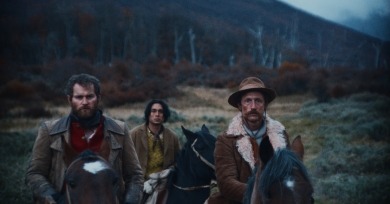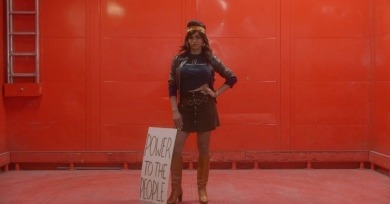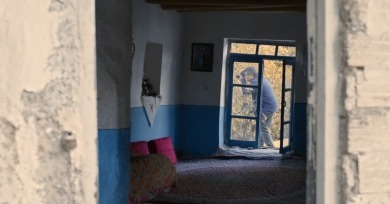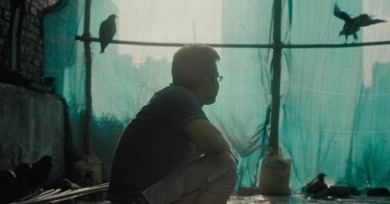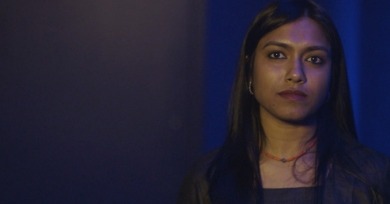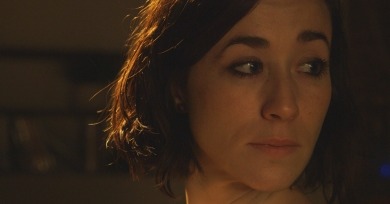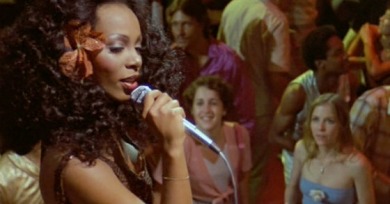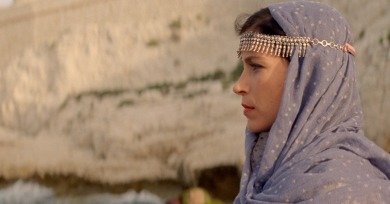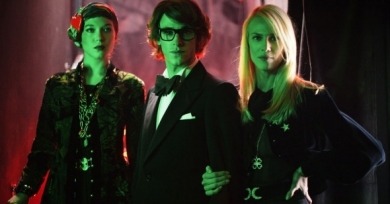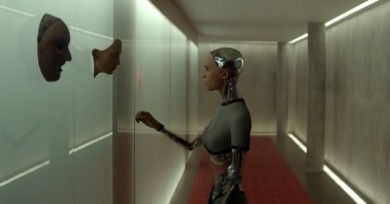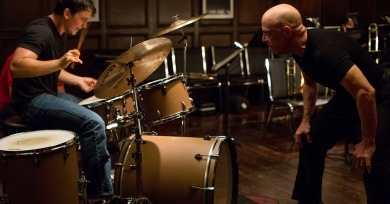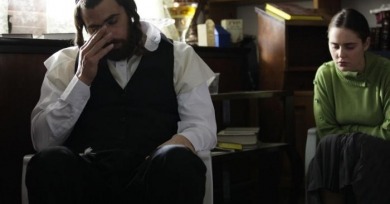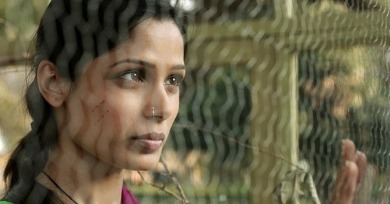Farihah Zaman
A brutally effective journey into hell on earth, The Settlers reckons with the violent birth of modern-day Chile at the hands of Spanish colonizers all too willing to treat the people indigenous to the land as an obstacle to be cleared away like timber in the name of “progress.”
As the voices interweave and sometimes overlap, the work begins to transcend both the individualistic and the monolithic, and recasts Woolf’s Orlando: A Biography as the story of a community, or what could be the story of humanity.
The depictions of trans people and in particular sex workers can be centered around the desires of cis straight men; in contrast, Kokomo City, in which the participants can simply be, feels like an act of resistance.
His latest thoughtful docu-fiction hybrid, No Bears, is deceptively gentle, initially even comedic, lulling with a ruminative pastoral quality that is gradually pierced by painful reminders that these are more than stories—they are the contours of people’s lives.
All That Breathes is a revelation not because it presents a straightforward clash between man and nature but because it understands that man is also nature.
In the murky waters of documentary ethics, responsible filmmaking is not always a question of authorship, but of perspective. It is not just about who is behind the camera, but who is seen through its lens.
A new Reverse Shot short film creatively documents the private Critical Interventions symposium hosted at Museum on the Moving Image just before the pandemic closed down the world.
“Will haunt you after it’s over . . . makes us think about the role that food plays in our lives—both as social beings and creatures of the earth.” –Vox
Two strange musicals from the 1970s—featuring Catherine Deneuve and Donna Summer—help our writers find pleasure in the perverse.
Cameraperson neither goes out of its way to remove traces of the maker nor takes her as subject exactly, but acknowledges the idea that the camera is an extension of a particular human being, and that the images before us are indelibly imbued with her perspective and presence.
She is very charming, very vain, and very blonde. She is also a woman in a moment of internal crisis, awaiting a diagnosis from her doctor regarding the tumor in her belly.
The Witness, directed by James Solomon, delves beneath the case study to engage with the once living, breathing person, through the eyes of Kitty’s younger brother, Bill Genovese.
Although Miguel Gomes has explored nested stories, and has layered and mythologized daily events in his other films, such as Tabu and Our Beloved Month of August, Arabian Nights is a far riskier endeavor than previous efforts.
The first half of the film moves in simple chronological order, but as Saint Laurent begins to break down emotionally, so too does the film’s careful construction, entering the subject’s point of view and moving fluidly through past, present, and future.
It is of tantamount importance that Ava is a woman, that all previous iterations created by Nathan were women, and that they are, as conscious, female humanoids, under the subjugation of their creator, who doesn’t see this as problematic because he views them as less than.
In Whiplash, Damien Chazelle (Guy and Madeleine on a Park Bench) has so effectively represented the intense physicality of being a musician that watching it one might wonder if a drummer could actually play himself to death.
Blue is so universal in its portrayal of love, so honest about the role that sex plays in becoming an adult, and so painfully accurate in capturing that hollow feeling that follows losing someone against one’s will, that the experience of the film transcends flaws both real and imagined.
It is easy to get caught up in the atmosphere of Rama Burshtein’s feature debut, which is largely set in the homes and meeting places of the tight-knit Israeli Orthodox Jewish community, always quietly bubbling with constant conversation or prayer.
The power issues run deeper in Winterbottom’s film than in Hardy’s novel because they are not just socioeconomic and gendered; Jay is half-British, raising additional questions of race and postcolonial identity.
The Pirates! Band of Misfits is a terrific concept (the dry Monty Python–esque wit and handmade charms of stop-motion animation masters Aardman applied to a swashbuckling high seas adventure) casting desperately about for a movie
